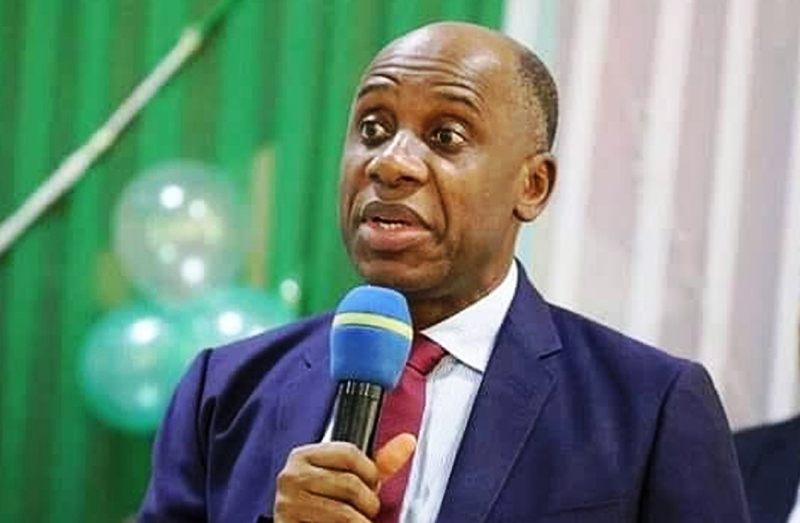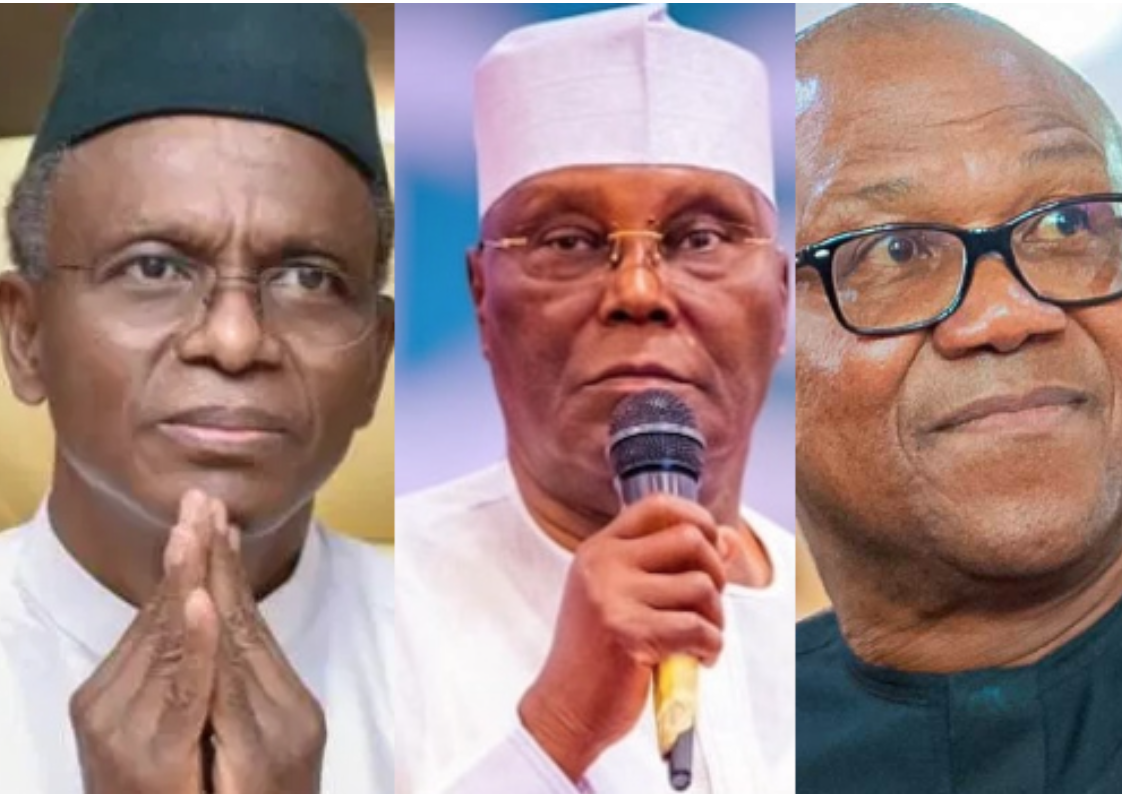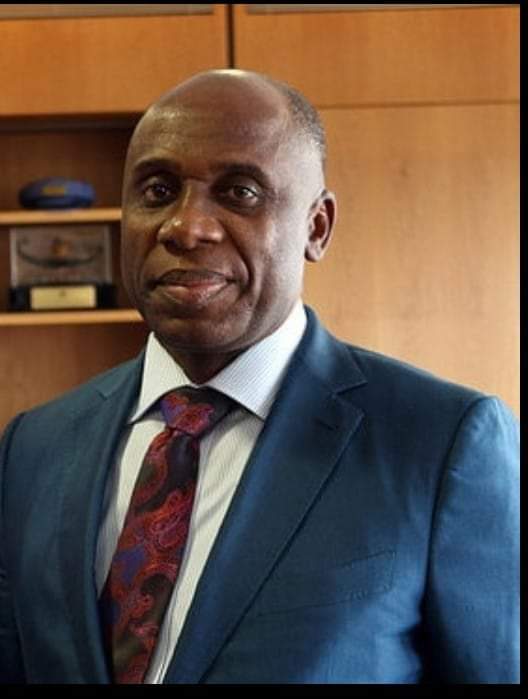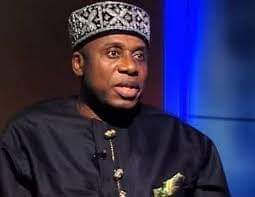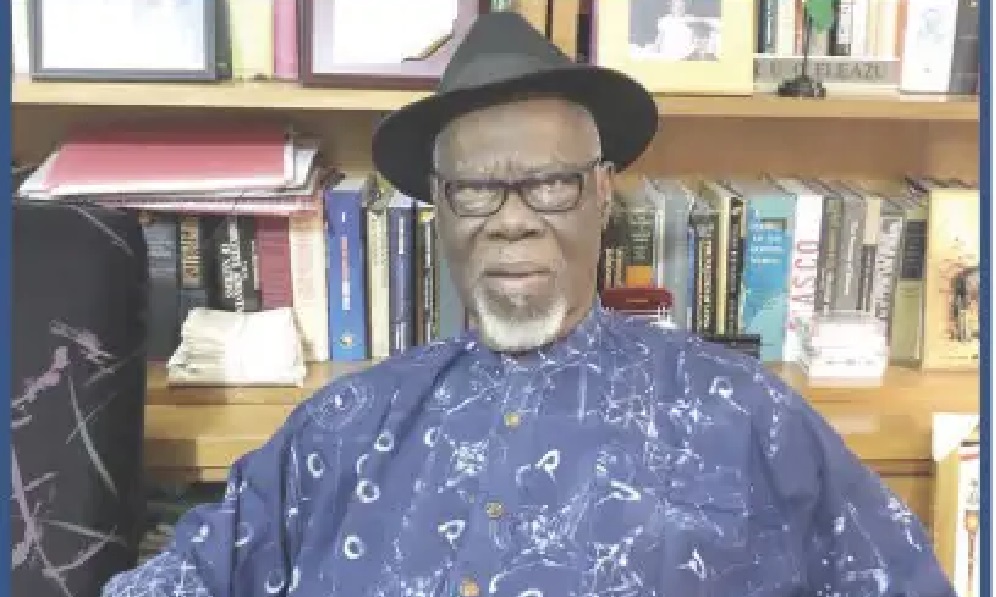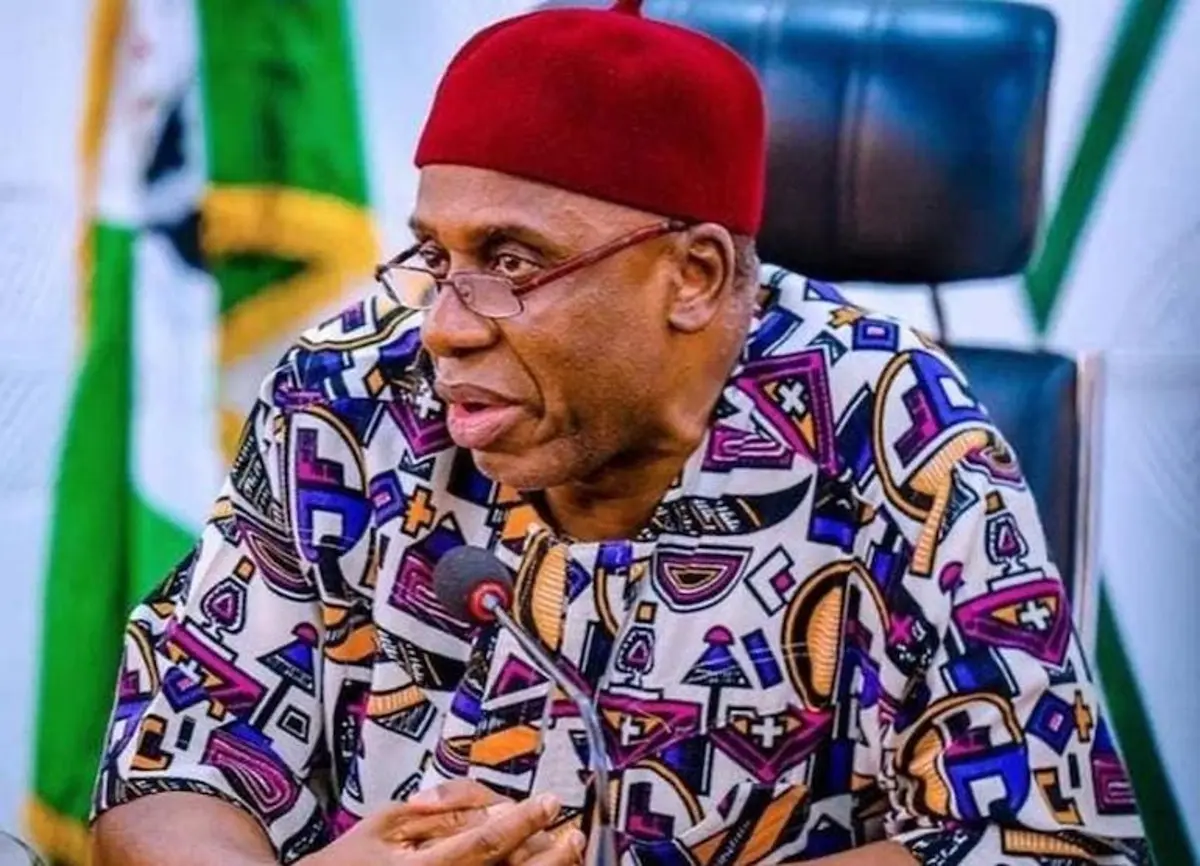Ex-Governor of Rivers State and immediate past Minister of Transportation, Rotimi Amaechi opened the underbelly of Nigeria’s democracy at this year’s Niche Annual Lecture series saying our democracy is not yet matured.
In the lecture entitled: ‘Why we stride and slip: Leadership, Nationalism and the Nigerian Condition’, Amaechi admitted that “Elections are still massively rigged and influenced by violence, manipulation and thuggery.
Hear him:
“Admittedly, our democracy has not yet matured… Elections are still massively rigged and influenced by violence, manipulation and thuggery.
“Most of our mandates are purchased at exorbitant prices. Our legislature remains an over-bloated conclave of mostly inactive onlookers.
” The executive branch is often stuck in the swamp of its own bureaucratic creation. Our judiciary is embarrassingly corrupt and largely compromised, mostly dispensing judgments rather than justice.
“The realities of today confront us with some inconvenient truths. Our democracy has alienated the people.
Read full text below:
Let me thank the publisher and management of TheNiche publications for the generosity of their invitation. By inviting me to deliver this year’s annual lecture, you must have updated your list of Nigerians who qualify to address this distinguished audience. I have followed TheNiche annual lecture series and been impressed by its passionate preoccupation with aspects of our national history and changing condition.
I am therefore both elated and flattered by your invitation. Going by the distinguished list of your past lecturers, I do not take the honour of this opportunity lightly.
It seems to me that one of the criteria for being selected to speak on this platform is some experience and prominence in the Nigerian public sphere. I take it that once you have had the opportunity to serve in some capacity in the nation’s public life, you are deemed to have some opinion of how things ought to be in our national life. I agree in the sense that public office equips one with both practical experience and some inside knowledge of how Nigeria works as well as why it does not work as well as we all would have liked.
In assessing the successes and failures of the Nigerian journey, it seems to me that it is the interplay of two factors that will best help our assessment. The two key factors are: LEADERSHIP and NATIONALISM. It is not possible to understand, for instance, the role of someone like President Olusegun Obasanjo in our national history without a consideration of these two factors.
Therefore, whatever else you may say about President Obasanjo, I consider him as a personification of true leadership and nationalism in Nigerian history.
But this lecture is not about President Obasanjo! Instead, it is an exploration of how the interplay of Leadership and Nationalism has determined the course of our national history to date.
In this regard, I will be examining the quality of our national leadership from the anti-colonial to the present on the basis of the quality of Nationalism displayed by our changing Leadership. In other words, to what extent has Nigerian leadership been imbued with the necessary sense of nationalism? How has the nationalism content of our changing leadership enhanced or deterred our progress and development as a nation?
Truly remarkable national leadership is the ability of a leader to galvanize the totality of a nation around a common national banner with a vision and a sense of mission. Genuine nationalistic leadership transcends ethnicity, religion, creed, region or geography.
The truly remarkable national leader is the one that is able to rise above these limitations to take the nation and its people to that place where they long for but have never been before. It is a place of national greatness, pride, achievement and shared hopes, aspirations and shared prosperity.
Most modern nation states are the product of the amalgamation of diverse nationalities under a common sovereignty. And because the nation state is the common currency for the conduct of international relations in the period after the two world wars, individual nations nation state. This has given rise to what political scientists and social scientists have come to recognize as the National Question.
Nationalism and the National Question:
In trying to build a nation out of a multiplicity of nationalities, social science and history have come to grapple with aspects of the national question. And clearly, most nation states are cobbled together from many and even often conflicting nationalities.
There can be no credible leadership of a diverse nation without some form of resolution of the national question as it pertains to the particular nation in question.
As a subject of enquiry, the National Question has remained a lively and recurrent preoccupation of political science and political discourse since the emergence of the nation state.
This interest has heightened especially in the period from the First World War through the Second World War and even after the formation of the League of Nations which became the United Nations.
As a general rule, the National Question tends to acquire stridency in places where the identity of the nation is still tormented by the pressure of ethnic and sub national forces.
At other times, dire economic and political circumstances have forced politicians and the populace to raise questions about the unity of individual nation states or indeed the plight and stake of the nationalities that make up the very state.
Broadly speaking, then, the National Question concerns two broad aspects of the existence of the nation state. First is the question of the integrity of the nation state itself, its unity and the loyalty of its citizens to it.
This aspect is shrouded in questions such as: Can we take the existence of the nation for granted as a given? Does the nation as a concept automatically command the loyalty and patriotic commitment of its citizens?
Does the existence of symbols of nation statehood such as a flag and a national anthem in and of themselves give the citizens of a nation confidence, sense of belonging, a place under the sun and some contentment?
For Lenin, the National Question arose as part of the struggle of Russians against the Tsar and an exploitative monarchy. Lenin conceived of the National Question as the right of the component nationalities under Tsarist Russia to self-determination and the overthrow of the monarchy.
The right to self-determination of the nationalities also implied a unity of the proletariat of those nationalities against the bourgeois state presided over by the Tsar and his bourgeois support cast.
The second aspect of the National Question has to do with the relative strength of the nationalities that comprise a nation vis-a-vis the larger identity of the nation state as an abstract construct.
Once the composite nationalities of a nation state come together under a common sovereignty, does the existence of the state wipe off the identities and interests of the component nationalities?
African scholars as varied as Mahmood Mamdani, Abubakar Momoh, Claude Ake, Ikenna Nzimiro and Eskor Toyo have variously examined these aspects of the National Question in the drive for the evolution of African nation states.
The prominence of the power of ethnicity in nation formation is most pronounced in African states because of the colonial heritage of all African nation states.
For the administrative and economic convenience of the colonial powers, they carved up Africa among themselves and conveniently merged the ethnic groups within their respective colonial territories.
Under the pressure of the independence movement, they hurriedly licensed the groups of ethnic nationalities under them into nation states which were granted independence at different stages of the decolonization process.
After the exit of the colonial powers, post–independence Africa has had a protracted history of political turmoil and in some cases bloody civil wars as a result of these unsettled often complex national questions.
In Nigeria, for instance, the unresolved national question is at the root of elite contests for power, privilege and patronage in the post colonial state. Our political elite constantly run to their ethnic base to invoke ethnic discrimination each time they fail to win advantages in their struggle for power and privilege at the national level.
If a contractor fails in his bid for a major federal contract, it must be because the rival elite from other nationalities conspired to marginalize him because of his ethnicity.
These intra elite class feuds are then transmitted to the grassroots as evidence of irreconcilable differences or deliberate marginalization. In the process, a narrative takes root and expands thereby making national unity even more intractable and precarious.
But in situations where the process of nation building preceded political independence, the issues that dominate debate on the National Question are broad questions of a common national identity, the defense of the nation from external aggression, the health of the national economy, how to ensure the security of the nation, the general welfare of the citizenry, how to inspire and sustain patriotism and love of nation over and above love of the self or one’s ethnic group.
Nationalism and our Founding Fathers:
The National Question has been in the forefront of all debates about the prospects of the Nigerian nation state from inception. From the 1914 Amalgamation of the Northern and Southern Protectorates to form the Colony of Nigeria to political independence in 1960 and beyond, the National Question has dominated discourse about Nigeria for the last 107 years. It is still very much with us today as we have noted.
Our founding fathers were themselves not sufficiently preoccupied with issues of a common Nigerian national interest and identity in their struggle against British colonial authority. Building a common Nigerian nation was not in the interest of the British and they did not encourage it either. Their primary interest was the economic expropriation and mechanical administrative integration of the Nigerian colonies for their own benefit.
Sir Abubakar Tafawa Balewa, our pioneer Prime Minister, was so irked by the lip service of the British to any consolidation of the unity of Nigeria as a nation that he declared on the floor of parliament on 20th March, 1947: “Nigeria has existed (since 1914) as one country only on paper…Nigerian unity is only a British intention.”
Similarly, Chief Obafemi Awolowo declared with characteristic frankness and unsparing adroitness on pages 47-48 of his famous book, Path to Nigerian Freedom (1947) that: “Nigeria is not a nation. It is a mere geographical expression…”
In similar vein, General Yakubu Gowon who was later celebrated for the feat of re-uniting the country after presiding over a divisive civil war declared after the sectional coup that brought him to power in 1967 that: “The basis of Nigerian unity no longer exists…”
Taken together, these statements and sentiments by various Nigerian leaders at different times in our history testify to their frustration with the herculean task of forging a united nation out of the British inheritance of a very multi ethnic, diverse and divided Nigeria. Yet, it needs to be said without any sense of apology that these views amounted to a historic abdication of the heavy responsibility of nation building by our earlier leaders.
Typically, the British saw the schism and exploited it in their familiar strategy of “divide and rule”. When it suited them, the British preferred to negotiate Nigeria’s independence with regional leaders rather than a joint Nigerian nationalist group. At some stage, the British suggested granting independence to Nigeria in regional installments, saying that certain regions were not quite as ready as others for independence.
For the British then, the negotiated independence granted Nigeria on October 1, 1960 was the outcome of a carefully choreographed arrangement to ensure that the regions would be perpetually in conflictual competition with each other even after independence.
With that faulty foundation, the task of building a united nation would remain perennially elusive. Regrettably, this inherent foundational flaw has been carried forward and magnified into a fundamental principle of governance and political succession in the post independence era.
With the benefit of hindsight, it is perhaps unfortunate that the agitations and political rehearsals that led to Nigeria’s independence were dominated by inter ethnic struggles for pre eminence among the major and minor nationalities. Our history books are scanty on any meaningful and concerted efforts by our founders to sink their differences and embark early on the task of nation building.
In this regard, I make bold to say that our founding fathers succeeded more in wrestling with the British for political independence and with each other for pre-eminence rather than in forging a united nation.
If the aim of independence was an authentic and strong Nigerian nation, then our founders may have missed the boat quite early in the day. The stark burden at independence was therefore that of how to fashion a coherent nation out of the divergent tribes and ethnicities that make up Nigeria.
This is not however to undervalue the illustrious struggles that led to political independence in 1960 but merely to indicate where and when our current problems with the National Question began.
Regrettably and on the contrary, our founding fathers were more remarkable as sectional, regional and even ethnic heroes than as towering national figures.
Their Nigerian nationalism was collateral to the primacy of regional supremacy. Consequently, Nigerian’s independence struggle had no single towering national figure that galvanized and personified the vision of a united Nigerian nation.
Mahatma Gandhi (India) and Lee Kuan Yew (Singapore):
This situation contrasts sharply with the role of ardent nationalists and nation builders in national history elsewhere, namely, India and Singapore respectively.
In the case of Mahatma Gandhi of India, his movement – the National Movement- wrested independence from the British on the platform of a solid, united and visionary Indian nation. Gandhi’s towering moral stature, political savvy and visionary leadership gave India, a massive country in every sense, the unanimity of purpose and nationalistic vision required to push towards independence and global influence.
Gandhi had a difficult national question situation to contend with. He had to navigate deep ethnic nationality divisions as follows: Hindi 43.6%, Bengali 8%, Marathi 6.9%, Telugu 6.8%, Tamil 6.7%, Gujarati 4.6%, Urdu 4.2% and Kannada 3.6%.
Gandhi also had fundamental religious and sectarian divisions to deal with. Again, Indians were people of diverse faiths as follows: Hindus, Moslems, Sikhs, Budhists, Christians and Jains. It is an eternal tribute to Gandhi’s leadership and statesmanship that he presented India’s struggle for independence as a unified nationalistic enterprise that chose peaceful but principled resistance to pressure the British to accept India’s independence. The benefit of that strategy is largely responsible for the national focus and principled quality of India’s leadership to date.
In the case of Singapore, Lee Kuan Yew was first and foremost a remarkable visionary leader. He was first and foremost a nationalist in temperament who saw the multi ethnic composition of the city state as building blocks for building a nation. Singapore was composed of the following nationalities: Malays, Indians, Chinese, and Eurasians.
Through a process of cultural and social integration, Yew was able to forge a common national identity based on the primacy of economic survival and greatness. Again, it is this quality of visionary leadership and aggressive nationalism that accounts for the emergence of Singapore as one of the leading economies and harmonious societies of the world.
Military Rule and Nation Building (1970-1999):
The Nigerian civil war of 1967-1970 was the direct result of the unresolved issues of nation building that characterized Nigeria’s independence struggle. The feverish politics of ethnic and regional fierce fights led to a series of crises and violent political contests. Military intervention in 1966 and afterwards produced more intense regional and ethnic tension and ultimately an avoidable but very bloody civil war.
The end of the war in 1970 was therefore an opportunity to reconstruct the basis of the nation by resuming the task of nation building from where it should have started. The mantra of the military government that ended the war was, therefore, most appropriate: “To Keep Nigeria One is a Task that Must be Done!”
It can thus be argued that all the military administrations that presided over the country for a period of 26 years were all preoccupied with problems of nation building.
It was curiously the task of a series of military administrations to re-establish political order and also undertake critical nation building projects.
Consequently, a new national order came into being since the pre-war order had produced violence and anarchy. The immediate task of the federal Military Government from 1970 was to ensure a sense of national unity and consciousness, even development, national reconciliation and equal access to opportunities.
The dominant new political reality in Nigeria was the emergence of an all -powerful Federal Might in the economic and political life of the nation. There was therefore a corresponding reduction of the political and economic footprints of the regions, now reduced to smaller states.
As in most successful experiences of nation building, it was the military might of the federal government that served to reunite the country after a devastating civil war.
That military might was used to guarantee the new national order, to keep the nation together and to subordinate all sections of the country to the authority of the Federal government. The component nationalities were held together by this military might while each of them had an opportunity to pursue their development and representation in the context of the new state structure.
The geographical re-structuring of the nation began with General Gowon’s creation of 12 states in 1967 to replace the four regions. This was the first major step to resolve Nigeria’s national question in the post-colonial era.
The 12- state structure ended the power struggle among the three dominant ethnic groups and the Three –Plus- One regional arrangement. It gave some of the minority nationalities like the Ijaws, Efiks, Idomas, the Langtang etc. voices and sub sovereign spaces to pursue their aspirations. The new state structure transferred the struggle for political power to the new states as centres of political consciousness and development activity.
The states were also new centres for the pursuit of de-centralized development and sense of belonging. Statism was to replace tribalism and ethnocentrism as the dominant sentiment in the struggle for national prominence and advantage.
Successive military administrations from 1970 up to the final exit of the military in 1999 were to see the merit of the creation of states as an instrument of national stability and the management of the National Question. It is no surprise that the present 36 states and FCT structure was accomplished by the military in power from 1967 to 1999.
In spite of frequent changes in military administrations and failed attempts to establish democracy, the new national order which they instituted in 1970 has served Nigeria for the better part of fifty years up to 1999.
The number of states increased exponentially till we got to the present 36-state structure plus an autonomous Federal Capital Territory. By the exit of the military in 1999, the challenge of the nation was how to replace the military guarantee of the national order with a constitutionally guaranteed civil order. This quest is the basis of the 1999 Constitution which remains in force up to the present moment.
In this period, a unified military command for the nation was instituted. Military personnel were posted to units across the country irrespective of their states of origin.
This ended the previous regional command structure which facilitated the outbreak of the civil war. The same unified command structure was adopted for the police, making policing primarily a federal responsibility.
At the level of infrastructure, a network of federal roads were built to bring sections of the country together. The national power grid was consolidated into a single network in which all power generated across the nation was consolidated and fed to a central grid complex at Osogbo from where it was redistributed to the rest of the country on the national grid according to need.
The main highlights of the military’s conscious efforts at nation building include the following:
Creation of 36 states
Institution of the National Youth Service Corps Scheme
Establishment of Federal Universities in every state
Establishment of the Federal Character/Quota system
Establishment of Unified Command Structure for the Armed Forces
Establishment of a Unified Command Structure for the Police
Establishment of a Zonal Command Structure for the Police
Democracy, Nationalism and Leadership: Present Challenges
Along this tortuous path, the nation has survived. The structures and systems established have undergone significant stress tests and shown their strengths and weaknesses.
The return of civil democracy since 1999 means that Nigeria has been a sustained democracy for only the past 24 years. Even then, our democracy now qualifies to be assessed in terms of the needs of a nation that tottered on the brinks of disintegration in 1967.
Our union as a nation remains imperfect. Ethnic and regional tensions and sentiments remain alive. They have been joined in recent times by new interests and even more dangerous forms of expression. Militancy and insecurity are prevalent. New forms and waves of crime have emerged. In recent times, sectarian pressures have climbed into prominence to further complicate a bad economic and political landscape.
But by and large, the framework of civil democracy remains in tact as the dominant order. The forces to contain our new challenges are still those made available by the democratic framework. To that extent, our national problems are now more of shared experiences of nationhood.
These challenges have in recent times come to define the character and quality of successive political leadership. Our leaders have either failed to grapple with these problems or approached them with neither courage nor nationalistic leadership.
Admittedly, our democracy has not yet matured. Twenty four years is too short in the life of a democracy to register any significant impact. Elections are still massively rigged and influenced by violence, manipulation and thuggery.
Most of our mandates are purchased at exorbitant prices. Our legislature remains an over bloated conclave of mostly inactive onlookers. The executive branch is often stuck in the swamp of its own bureaucratic creation. Our judiciary is embarrassingly corrupt and largely compromised, mostly dispensing judgments rather than justice.
The realities of today confront us with some inconvenient truths. Our democracy has alienated the people. Government, even at the local level, is detached from the people.
Our electoral system has further alienated the people by its serial compromises. In all of this, the national elite has failed to strike a consensus on the critical minimum needs of our society because they themselves are alienated and compromised.
Role of Infrastructure in Consolidating National Unity & Democracy:
Perhaps I need to digress a bit here to emphasize the critical role that infrastructure development has to play in enhancing national unity and speeding up the gains of democracy. I will here draw mostly from my recent experience in progressing the national rail development effort as Minister of Transportation.
In Conclusion:
I hope that I have provided a graphic enough portrait of our national leadership trajectory to date. In outline, the high points of why we are where we are can be summarized as follows:
Firstly, our nationalism and nation building are younger than our nation as an independent entity.
Secondly, we have had more ‘rulers’ than ‘nationalistic leaders’. Even our democratically elected leaders have come from a background of ethnic balancing and compromise rather than merit.
In my estimation, Nigeria’s democracy needs a serious re-think in terms of its scope, focus and informing vision to make it more appropriate to our condition.
Full text of the lecture delivered by Rt. Hon. Rotimi Chibuike Amaechi, former governor of Rivers State and Minister of Transportation at the 2023 TheNiche Annual Lecture at the Nigerian Institute of International Affairs, Victoria Island, Lagos, on October 26, 2023.
